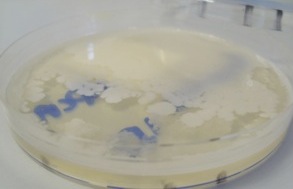Holding Nestlé to account
Nestlé BabyNes system breaks Code and endangers health
 Baby Milk Action and IBFAN are publicly repeating their call for Nestlé to modify its new BabyNes ‘nutrition system’ to follow the joint FAO/WHO Guidelines for the safe preparation, storage and handling of powdered infant formula (WHO PIF Guidelines).
Baby Milk Action and IBFAN are publicly repeating their call for Nestlé to modify its new BabyNes ‘nutrition system’ to follow the joint FAO/WHO Guidelines for the safe preparation, storage and handling of powdered infant formula (WHO PIF Guidelines).
The machine prepares an instant bottle of infant formula using a capsule containing powder, which is not sterile and may contain harmful bacteria. The WHO PIF Guidelines include a step to kill such bacteria. Nestlé also claims to add bacteria to the formula, using this as the basis for unproven health claims in its marketing. The machine received worldwide publicity from a launch to the media in Switzerland, which violated marketing requirements.
Nestlé executives refuse to introduce the step that kills bacteria or to warn on labels that powdered formula is not sterile. Laboratory analysis of capsules of baby milk for BabyNes machines detected the presence of bacteria, proving that the milk powder in the capsules is not sterile, as shown in the photo.
In the UK companies are required to add warnings to labels after many years campaigning by Baby Milk Action and its partners. For example, Danone’s Cow & Gate and Milupa brands state: ”because powdered milks are not sterile failure to follow instructions may make your baby ill” while Wyeth’s SMA brand states: “While this product is made up under strict hygienic conditions, it is not sterile. Failure to follow instructions on preparation and storage may make your baby ill.”
Recent worldwide studies have detected pathogenic bacteria such as Enterobacter sakazakii, Salmonella species and E. coli in samples of PIF. Previous tests reported by the US Food and Drug Administration revealed that 14% of packages contained bacteria that are potentially harmful, such as E. sakazakii.
Nestlé, the London Marathon, the Olympics and water
 After raising concerns about Nestlé sponsorship of the London Marathon with its Pure Life brand of bottled water, Baby Milk Action has learned that the contract still has a number of years left to run.
After raising concerns about Nestlé sponsorship of the London Marathon with its Pure Life brand of bottled water, Baby Milk Action has learned that the contract still has a number of years left to run.
We have been told there is little point meeting with the organisers until they are considering new suppliers. The London Marathon sponsorship policy is confidential. The Charity Commission calls for transparency and care over sponsors and so we raised concerns with it as 100% of the London Marathon surplus is handed to The London Marathon Charitable Trust. However, as The London Marathon Ltd runs the marathon and is a company not a charity (albeit one wholly owned by the London Marathon Charitable Trust), charity law does not apply.
Click here for information on Charity Commission guidance on corporate sponsorship, the "Nestlé-Free Zone" at the 2011 marathon (left) and details of the controversy surrounding Nestlé's Pure Life brand.
● Nestlé is sponsoring Team Nestlé, four UK athletes in training for the Olympics.
● Nestlé Chairman, Peter Brabeck-Letmathé, is spearheading the Water Resources Group, a joint venture with the World Bank. According to Corporate Accountability International:
“In order to be eligible for support from this new fund, all projects must “provide for at least one partner from the private sector,” not simply as a charitable funder, but “as part of its operations.” The US-based group commented: “Global water corporations must not be allowed to tap into public ‘development funds’ to promote their private agenda because case after case shows that profitability and fulfillment of human rights in the water sector are at odds.”






